Specialty Coffee is a term used to describe the highest quality standards in today’s coffee industry. This term first appeared in 1974 by Erna Knutsen in an interview with Tea & Coffee Journal. The author used the term Specialty Coffee to describe the most aromatic coffee beans, produced in regions with special climates. This very term later created a fresh wave among coffee lovers.
Today, this term is used everywhere in the coffee industry, inadvertently creating ambiguity for us – coffee lovers, as well as somewhat causing the public to underestimate coffee that meets Specialty Coffee standards. This affects the reputation, recognition, and understanding of this type of coffee. Originally, producing Specialty coffee beans is work that requires tremendous effort and time.
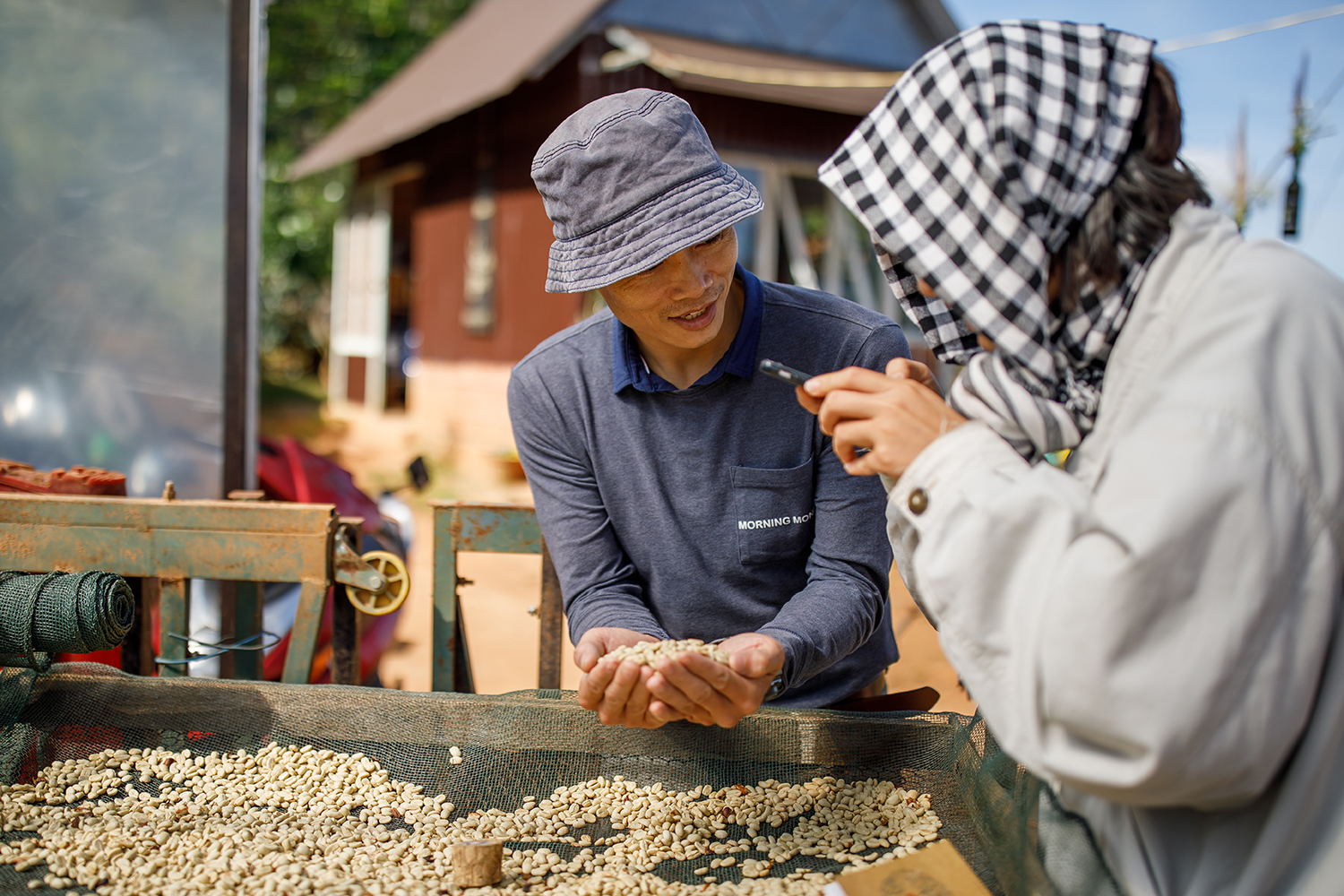
To clarify more about Specialty Coffee, let’s join Hello 5 Coffee in exploring the topic of high-quality coffee, standards for Specialty Coffee, and the organization (SCA) that built these standards!
Specialty Coffee Association (SCA)
It is a non-profit organization built on the foundation of openness, inclusion, and promoting the power of knowledge sharing. SCA drives the global coffee community’s development, supports activities to spread specialty coffee strongly, while sharing equitable benefits for the value chain and building a sustainably developing coffee industry.
Formation History
In the early 1970s, roasting companies and specialty coffee shops began appearing with increasing density in the United States and Canada. This was followed by the emergence of home brewing equipment and knowledgeable coffee magazines (you can see this repeating in Vietnam in 2022). However, at that time, specialty coffee was not valued by the United States Coffee Association.
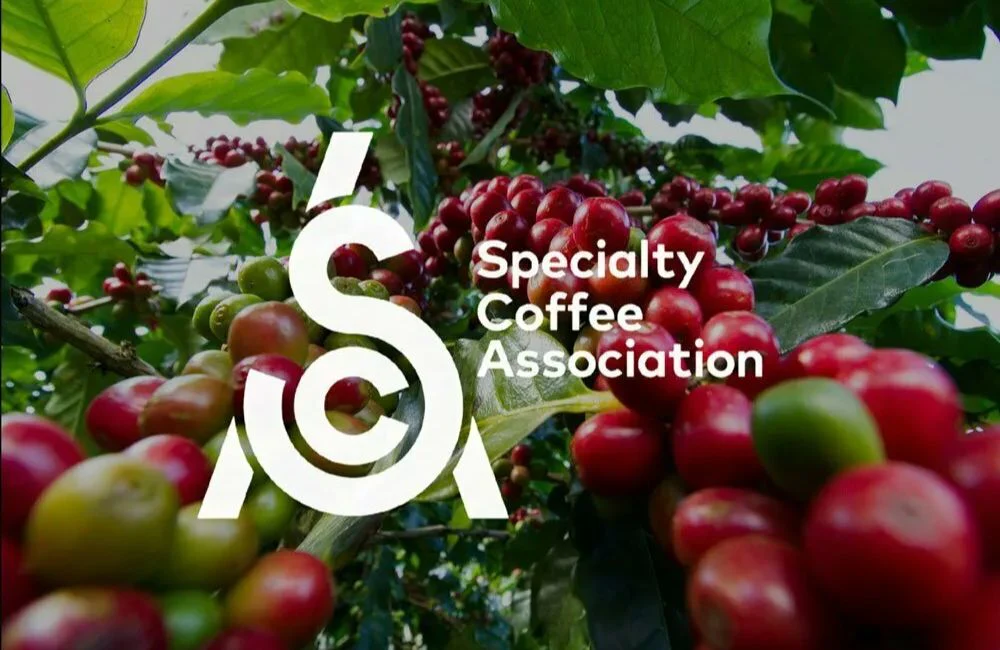
Therefore, specialty coffee roasting companies began connecting with each other, and those following the ideal of high-quality coffee met in San Francisco in October 1982 and established the Specialty Coffee Association of America (SCAA) with 42 initial members.
By early 2017, SCAA (Specialty Coffee Association of America) and SCAE (Specialty Coffee Association of Europe) merged into one organization called SCA, thereby spreading specialty coffee development worldwide.
Objectives
The coffee industry has too many links participating in the value chain: from coffee farmers, purchasing agents, processing units, transportation units, roasting facilities, distributors to end users. This leads to great difficulty in managing and evaluating quality as well as uneven benefit balance in the supply chain. Therefore, SCA was established as a unifying force for the Specialty Coffee industry, not only focusing on quality but also to develop a more sustainable and stronger coffee industry.
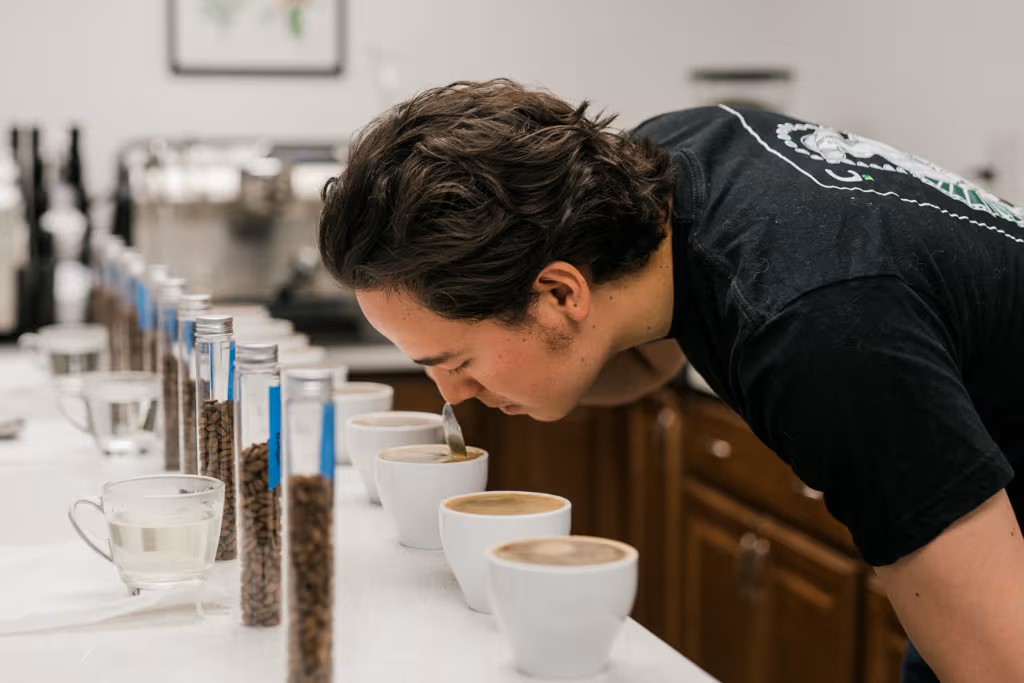
What is Specialty Coffee According to SCA?
According to SCA’s definition, Specialty Coffee is not just about “quality” but particularly emphasizes the importance of “people” in the value chain.
To standardize quality evaluation, SCA believes there needs to be a common standard for describing and evaluating coffee flavor. This requires a comprehensive coffee flavor description language that reflects both commercial and professional meanings.
From this foundation, the overall evaluation of aroma and taste of coffee samples has been standardized and described by scores on a 100-point scale.
Specialty Coffee consists of coffee beans that score 80 points or higher on the 100-point scale according to SCA’s scoring criteria. Specialty coffee only appears when there are relentless efforts from those always committed to bringing the highest coffee standards. It cannot come from individual effort but is the result of a collective effort across the ENTIRE VALUE CHAIN from farmers to baristas and even consumers.
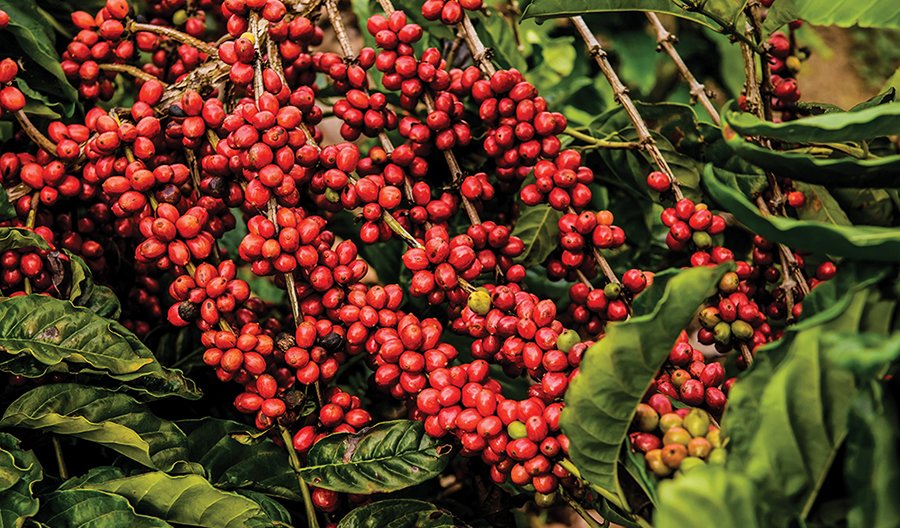
SCA’s Scoring Evaluation Criteria
A coffee sample when sent for scoring will go through 2 parts:
- Green coffee beans evaluation: shows the producer’s care
- Sensory flavor evaluation: shows the coffee bean’s flavor
Green Coffee Beans Evaluation: SCA will deduct points (according to conventions) when defective beans are discovered in the sample coffee batch. These defects include unevenness in size & moisture content; quakers (beans from unripe fruit); black beans; broken beans; shell beans; over-fermented; poor storage; insect-damaged beans; mixed with twigs, leaves, stones, etc.
Sensory Evaluation of coffee flavor through Cupping (the tasting process to evaluate quality). SCA experts develop standards for roasting and extraction so that evaluating the original flavor potential of beans is most accurate. When cupping, the criteria included in the scoring scale will include: Fragrance/Aroma, Flavors, Aftertaste, Acidity, Body, Uniformity, Balance, Clean Cup, Sweetness.
Those who evaluate coffee quality are experts with Q Arabica Graders certification from CQI (Coffee Quality Institute), they are experts trained to classify poor-quality coffees as well as capable of tasting to evaluate the most aromatic coffee beans.
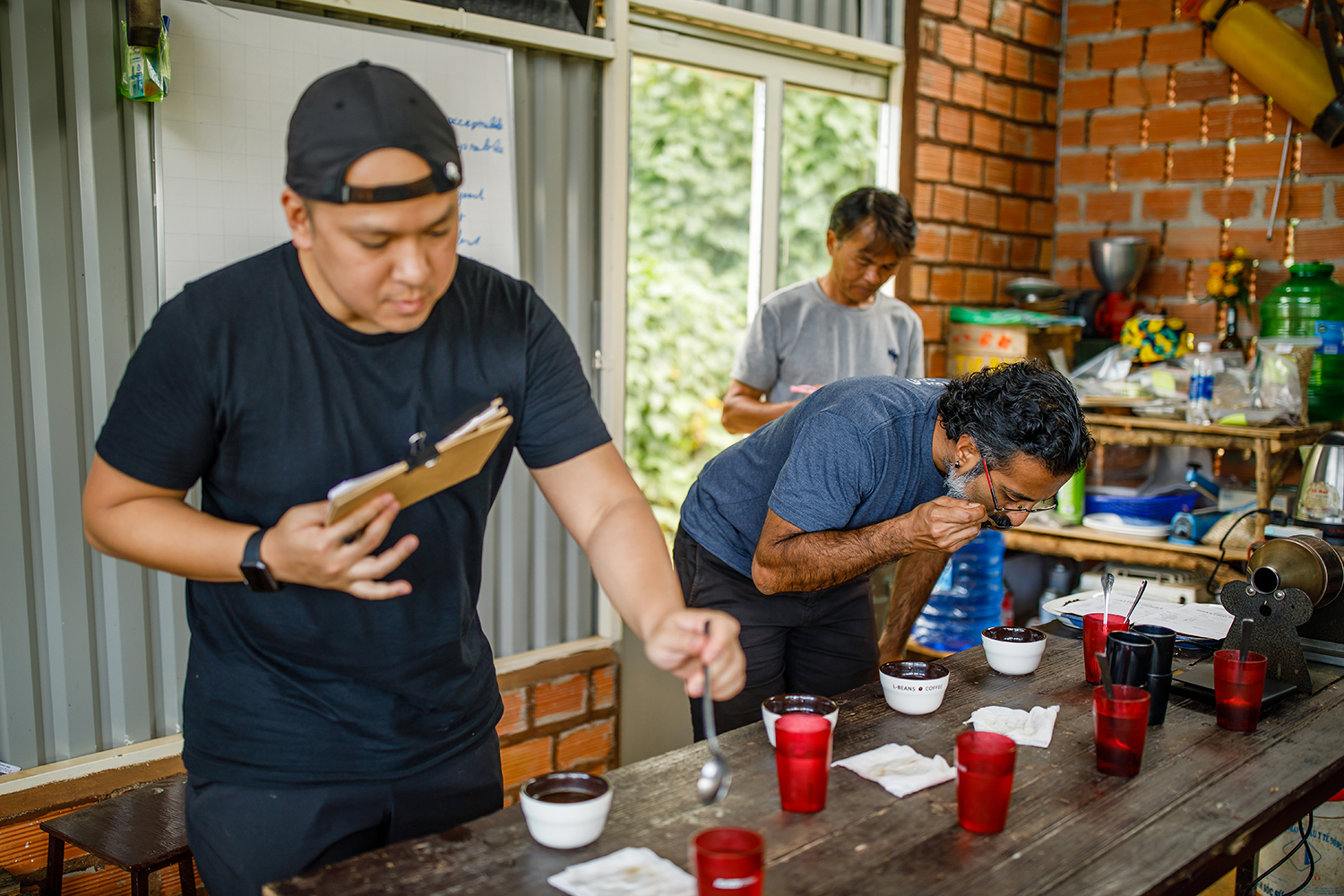
The Journey of Producing Standard Specialty Coffee
Specialty coffee beans before reaching us – the end consumers – will all go through strict management processes because any mistake in the supply chain can easily destroy the entire effort of the entire specialty coffee harvest chain.
Potential Farm
Each cup of coffee is the result of the coffee bean’s development process, from when it was still a seedling. Factors such as soil and climate conditions play an essential role in forming coffee bean quality. In the Specialty Coffee industry, there is a term “Single Origin” used to refer to coffee that comes from one farm, processed in a specific lot, roasted separately, and not mixed with any other coffee.
To begin, farmers must create the perfect growing environment, with factors such as appropriate altitude, favorable climate, and soil with distinctive characteristics. Seed selection, cultivation methods, harvesting processes, and post-harvest processing need to be conducted scientifically and sustainably, to meet the strict requirements of specialty coffee. Coffee trees are grown from the best seeds, nurtured under ideal conditions, and carefully selected to ensure the strongest health.
Storage
Immediately after harvest, coffee begins facing many risks that can reduce flavor quality. Coffee cherries need to be processed through primary processing steps immediately, and the time factor plays an extremely important role – the longer from harvest to processing, the higher the possibility of coffee flavor deterioration.
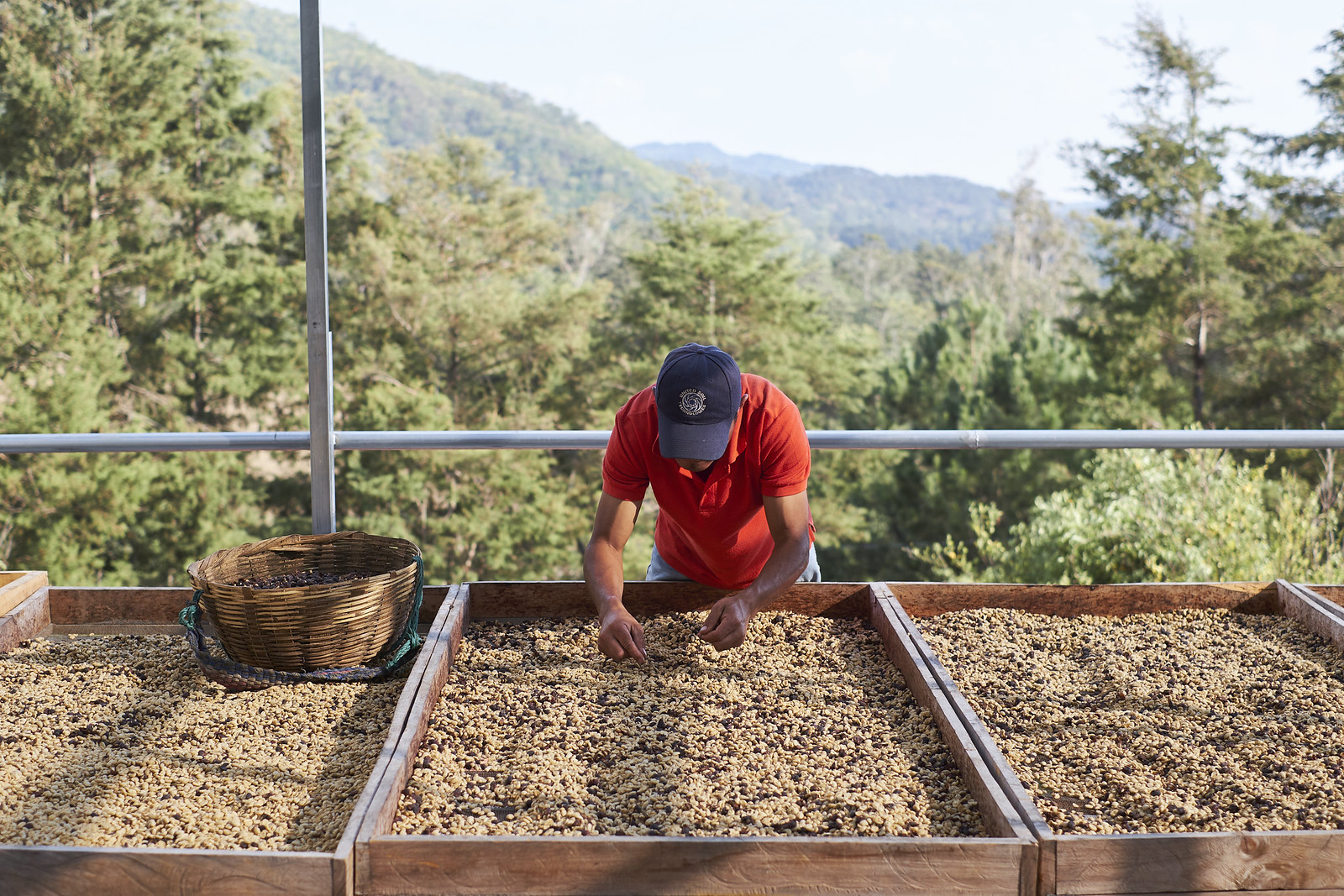
Throughout the processing, from removing the pulp to fermentation and drying, each step needs to be performed meticulously to protect coffee from any damage. Especially, the fermentation process must be strictly controlled in terms of time and temperature. Improper drying such as drying too fast or too slow, unevenly, or letting coffee get re-moistened, can reduce coffee’s quality potential. After that, coffee needs to be stored stably to rest before continuing with rough processing and transportation steps.
At this stage, environmental factors such as humidity and temperature, along with storage materials, become major challenges for coffee quality. Any small mistake in sorting, hulling, or selecting packaging and storage conditions before transportation can negatively affect the quality of the entire coffee lot.
Processing
Coffee processing includes roasting, grinding, and brewing steps. The coffee roaster needs to correctly identify each bean type’s potential to optimize its characteristic, original flavor. After coffee beans are properly roasted, they will be ground and release many flavors. The fineness when grinding coffee needs to be carefully adjusted to suit different brewing methods. Regardless of which brewing method is used, strict adherence to standards for water quality, temperature, and coffee-to-water ratio is necessary to ensure perfect coffee cup quality.
We need to note that the definition of “Specialty Coffee” only applies to Arabica coffee, while for Robusta coffee we have the “Fine Robusta” standard.
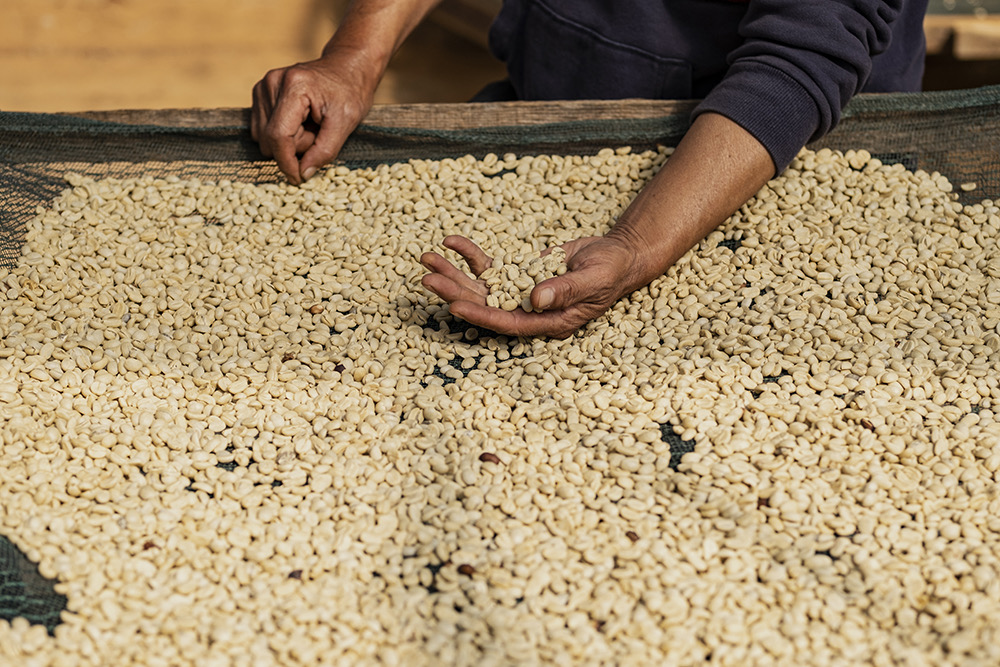
Distinguishing Specialty Coffee and Commercial Coffee
| Criteria | Specialty Coffee | Commercial Coffee |
|---|---|---|
| Quality and Flavor | Achieves at least 80 points on SCA’s 100-point scale, has unique and complex flavors, reflecting cultivation conditions and geographical region where coffee is grown. | Usually has simpler flavors, doesn’t emphasize flavor diversity and may be affected by mass production processes. |
| Production Process | Process from cultivation to harvest and processing all follow high standards to preserve coffee’s original flavor. | Production process is less strictly controlled, often focuses on volume rather than quality. |
| Origin | Usually has clear information about origin, from coffee variety, growing region, to processing methods. | Origin information is not transparent, often a mixture from many different sources. |
| Value | Has higher value due to quality and uniqueness in flavor, as well as focus on sustainability and social responsibility. | More affordable and accessible to the majority of consumers. |
Vietnamese Specialty Coffee
You may not know, despite being the world’s second-largest coffee exporting country, Vietnamese specialty coffee is still quite rare in the international coffee community.
Because Vietnam’s coffee industry mainly produces Robusta. With high caffeine content, Robusta coffee is often used to extract caffeine and as raw material for instant coffee. This inadvertently causes high-quality Arabica coffee in Vietnam to be overlooked and forgotten.
However, currently, many Arabica producers in Vietnam are changing their coffee-making approach. They are gradually moving toward producing Arabica coffee according to Specialty standards. By promoting improvements in cultivation, variety selection, and applying fermentation methods to improve product quality. At the same time, roasters and coffee shops nowadays have also introduced high-quality arabica into their business models.
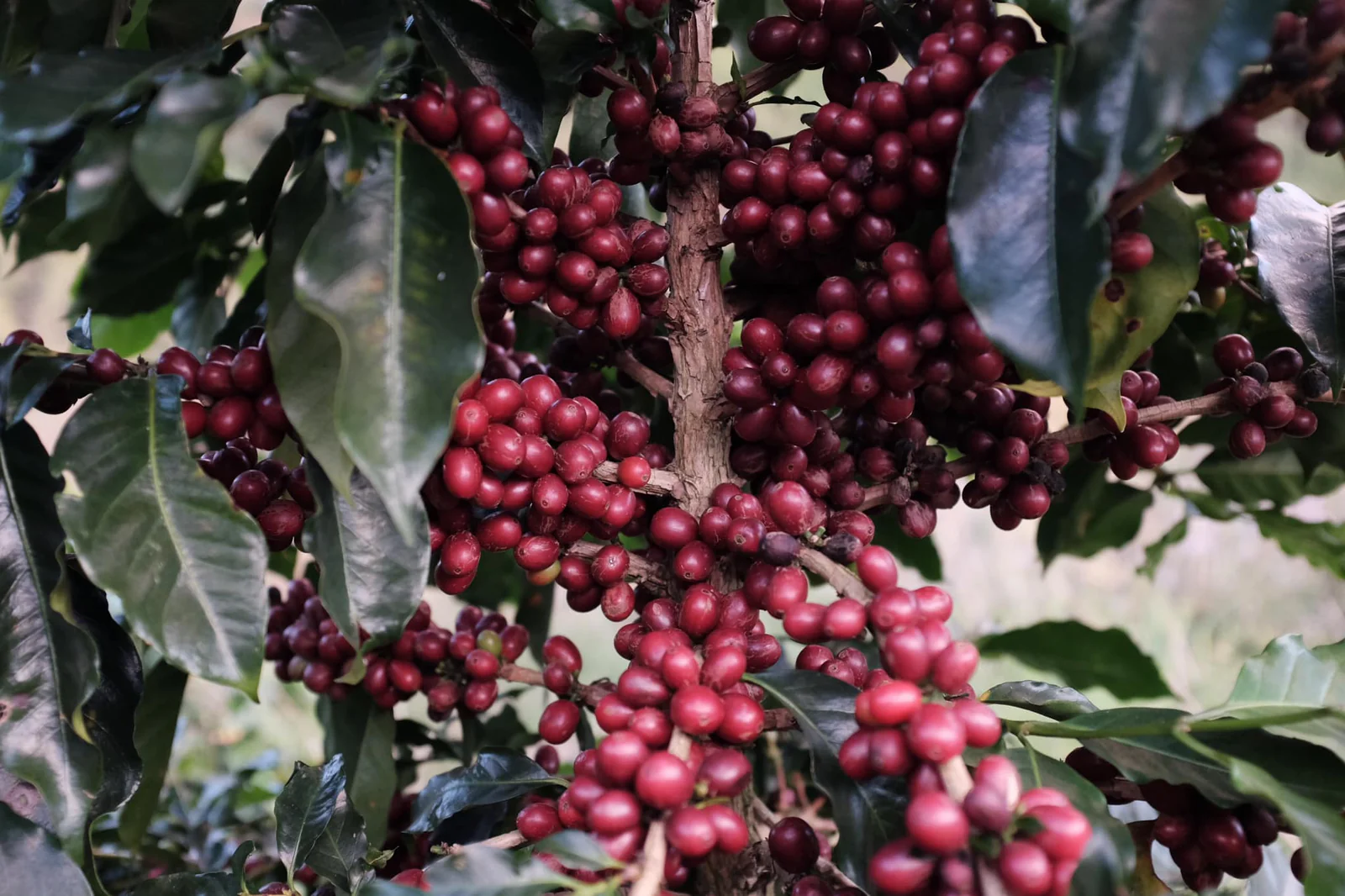
With the market, when young people increasingly have high globalization needs combined with the saturation of current coffee shops, Specialty Coffee easily becomes the next coffee trend when bringing novelty along with interesting stories around it. We can easily see the development of neighboring countries Thailand or Singapore.
These factors are positive signals for Vietnam’s Specialty coffee industry when moving toward high quality standards instead of focusing on volume as before. Alongside that, Vietnam’s coffee community is now gradually opening up to Specialty coffee beverages.
Do We Need Specialty Coffee?
According to us, yes!
Coffee is the export commodity with the second-largest exchange value after petroleum, however, coffee cultivation area is increasingly shrinking combined with climate change causing coffee production to decrease. Opposite to that is the rapid development of the industry as well as increasingly high demands for quality and volume in the market. If we continue to maintain the coffee industry as before, it will easily make the industry less sustainable and collapse in the future. And this is certainly something none of us want to happen.
With the modern coffee industry and especially Specialty Coffee, coffee is no longer just a beverage to consume caffeine or a place to meet friends. People care more about its flavor, about how it is formed, as well as the desire that all people participating in production must be respected and paid fairly, thereby creating a sustainable coffee industry.
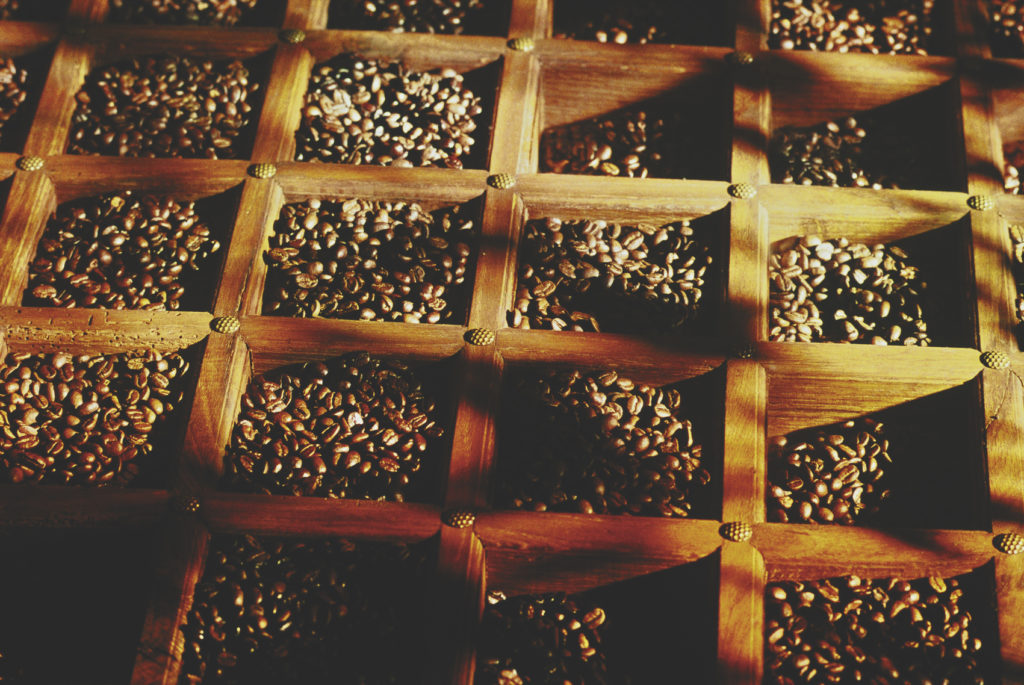
Those factors bring positive innovations such as: direct trade from farmers to consumers, sustainable agriculture, lighter roasting, more innovative and scientific extraction methods, people willing to pay more for quality products (perfectdailygrind).
So what could be more wonderful than a delicious cup of coffee with a sustainable development commitment. Thereby helping all people participating in the coffee industry to live well with their profession and focus more effort to continuously improve coffee bean quality.
How Should We Drink Specialty Coffee?
In this section, we are not talking about guidance for brewing Specialty Coffee, but we really want to mention our mindset when drinking this special type of coffee.
“Why is this coffee so sour? This coffee doesn’t suit my taste? How many points is this coffee? ….”
With their own characteristics, specialty coffee from different regions, different processing and roasting methods will all have their own distinctive flavors. Even the same type of coffee but quality will still change day by day, so comparison at this point becomes extremely inappropriate.
Instead, we should prepare an open soul and a spirit always ready to experience the new to enjoy our cup of coffee.
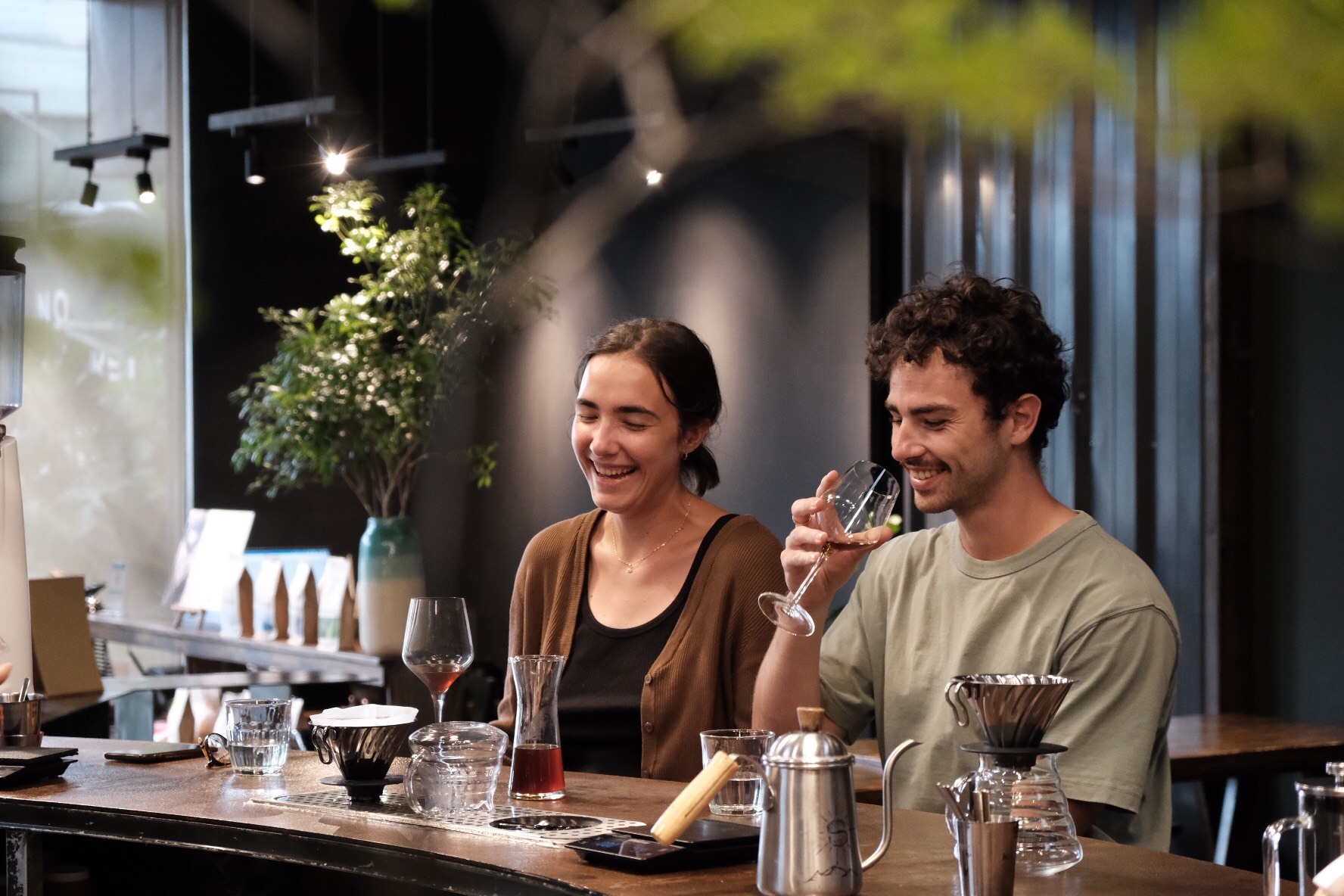
With Hello 5 Coffee, the joy of using specialty coffee does not come from you using coffee of how many points or perceiving all flavor layers like on the taste notes. Real joy comes from the process of you learning about it, you learn to make it better each day, and you share it with people around you.
If you are sipping a cup of specialty coffee while reading this? Congratulations, because you are enjoying one of the highest quality coffees in today’s coffee industry!
Read more: Where to buy Vietnamese coffee
In Summary
Specialty coffee is a term used to describe very high-quality arabica coffee beans scored 80 points or higher according to SCA’s scale, along with a sustainability commitment for the entire value chain from people to environment and society.
To produce specialty coffee is work that requires tremendous effort and time, so to avoid generalizing terminology, we respectfully do not translate into Vietnamese but keep the original term “specialty coffee” and use it as a proper noun.
We are fortunate to have our own farm so we participate in the full value chain from cultivation, harvest, production to roasting and brewing, so we deeply understand and appreciate the effort of passionate people who pursue quality to the end, especially those making specialty coffee in Vietnam.
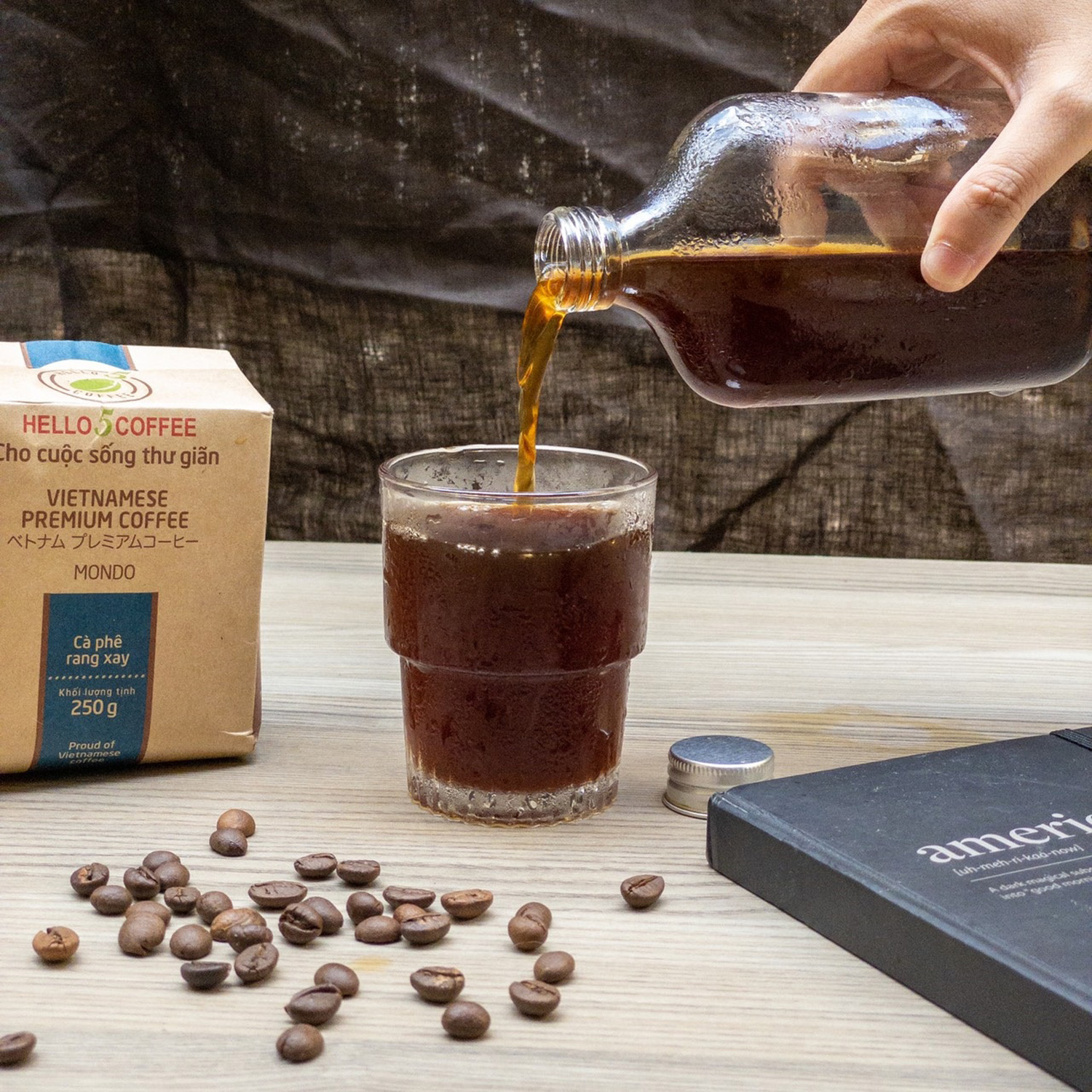
Therefore, Hello 5 Coffee very much hopes that when enjoying the cup of Specialty Coffee in your hands, you will be truly happy not only because you are enjoying the best coffees but also because you have committed to a more sustainable future for the coffee industry.
Enjoy your coffee!!
References:
- Phuong, L. (2023). Specialty coffee là gì? Son Pa Camara. Retrieved from https://sonpacamara.com/specialty-coffee-la-gi/
- Specialty Coffee Association. (n.d.). What is specialty coffee? Retrieved from https://sca.coffee/research/what-is-specialty-coffee
- Coffee Quality Institute. (n.d.). Home. Retrieved from https://www.coffeeinstitute.org/
- Batt, G. (2017, July). Coffee professionals discuss: What is specialty coffee? Perfect Daily Grind. Retrieved from https://perfectdailygrind.com/2017/07/coffee-professionals-discuss-what-is-specialty-coffee/
